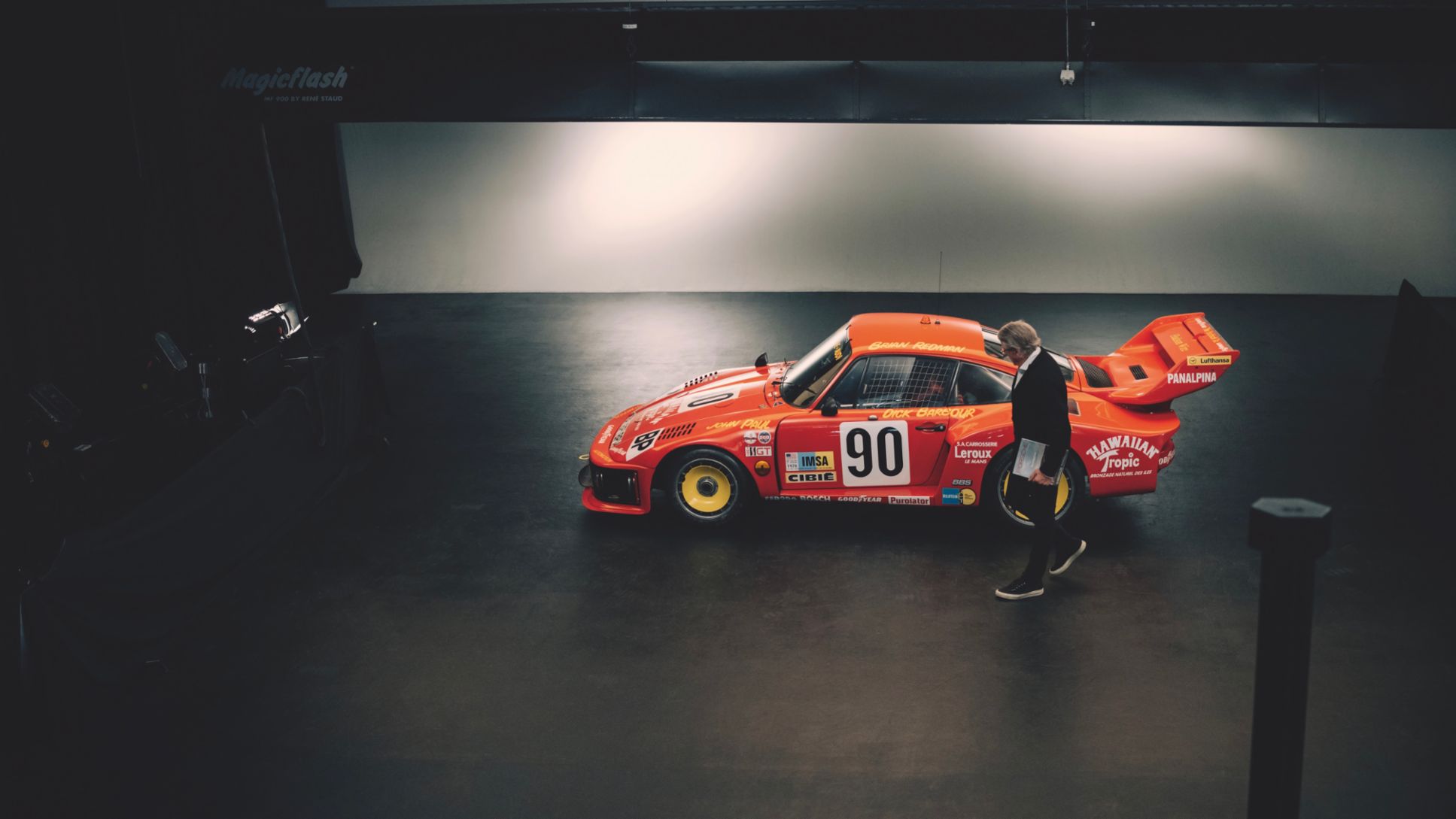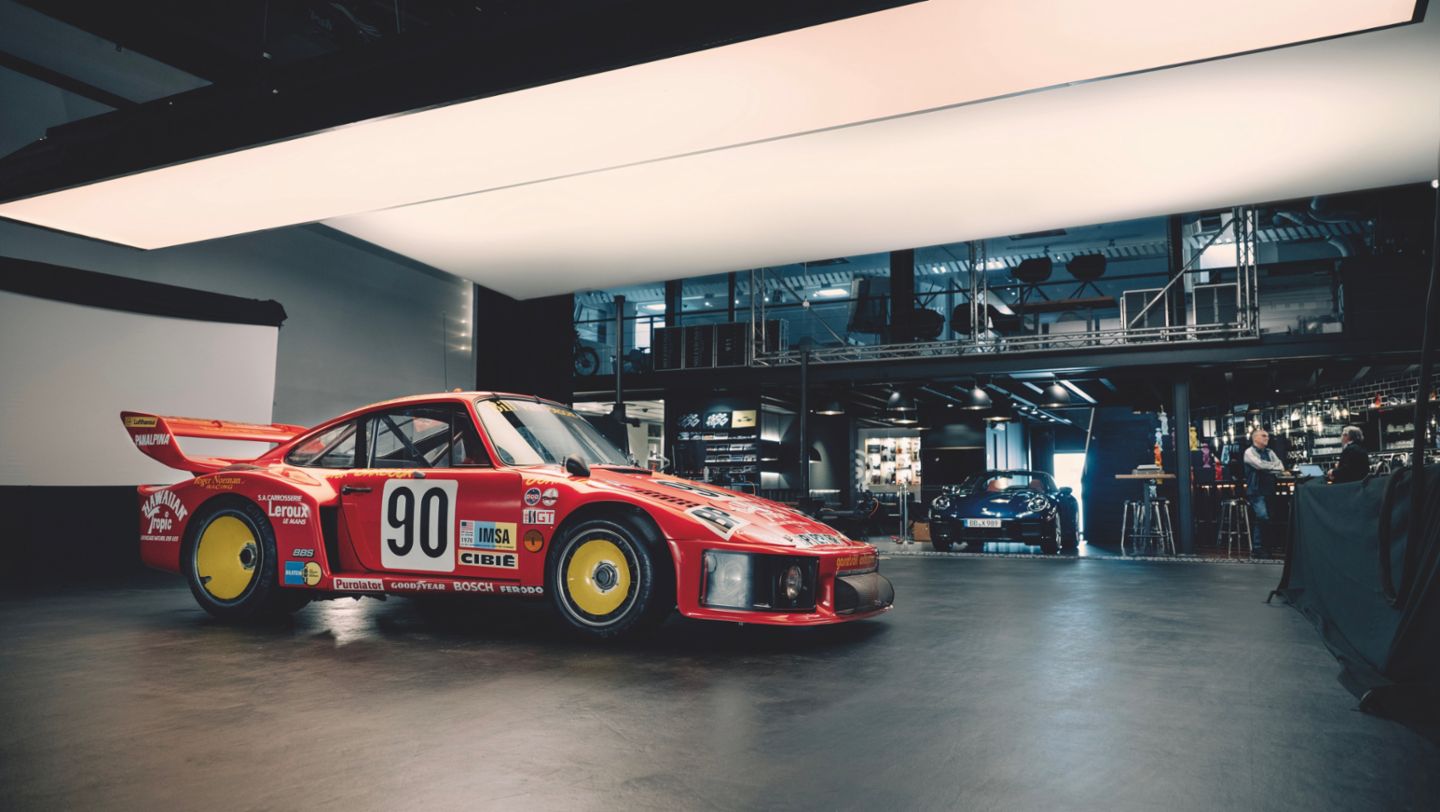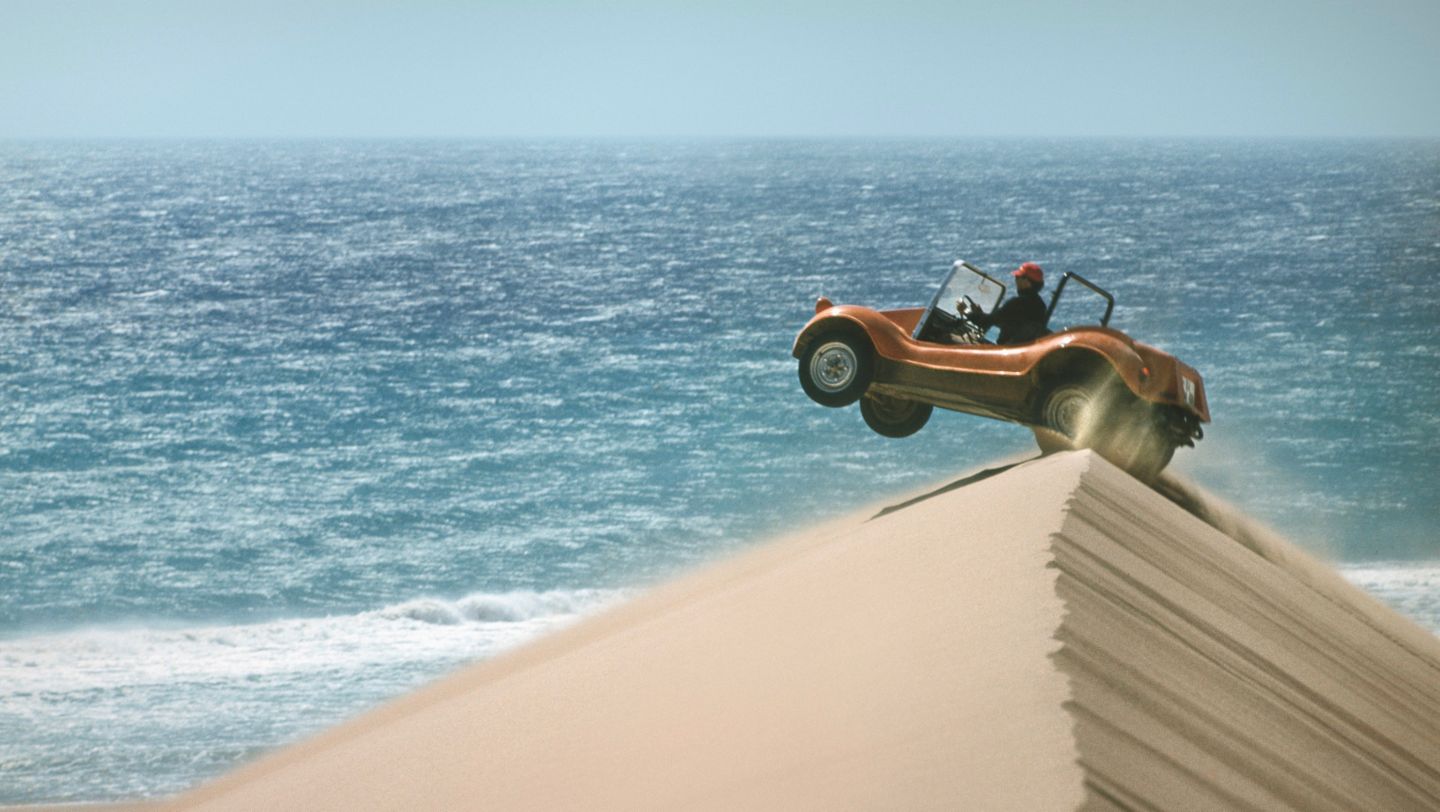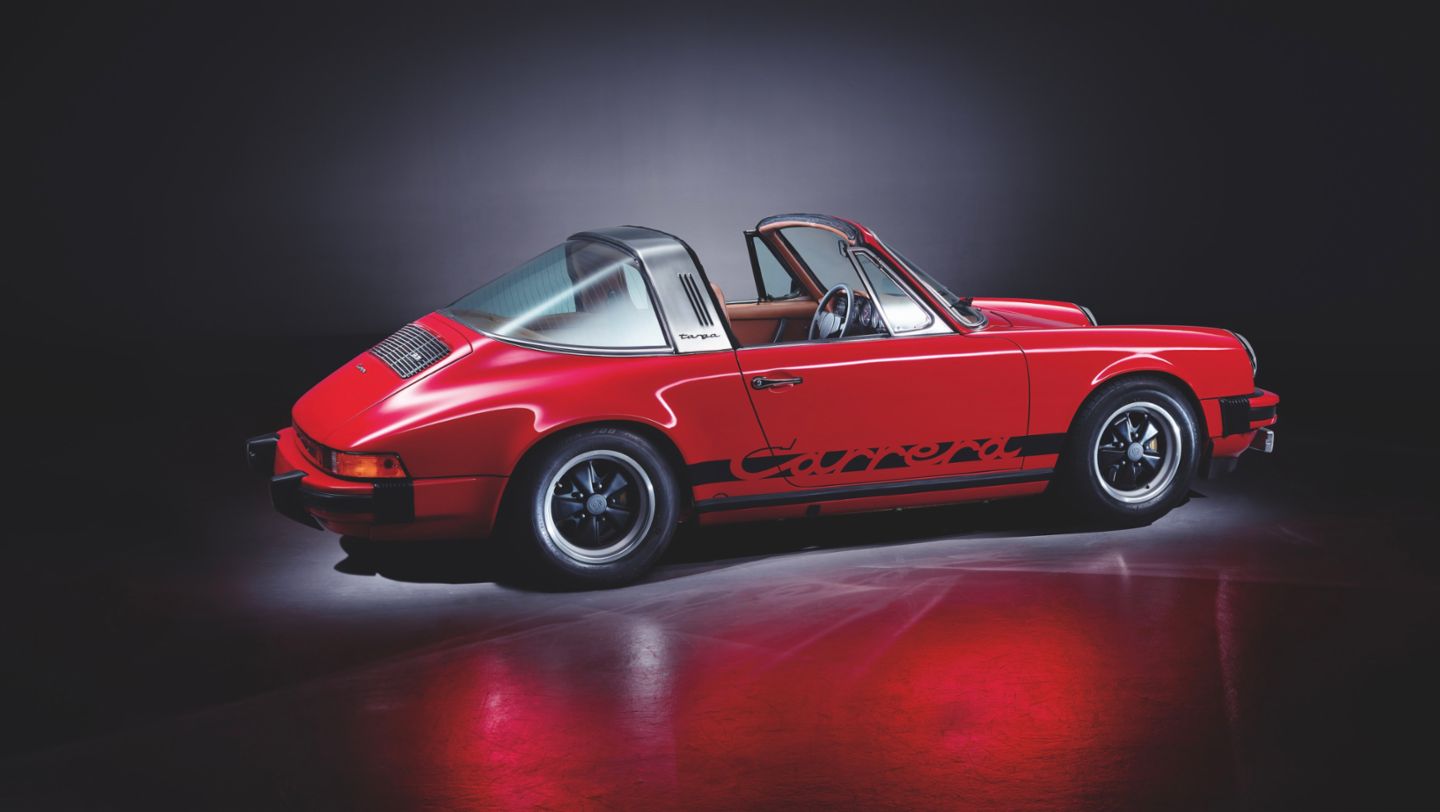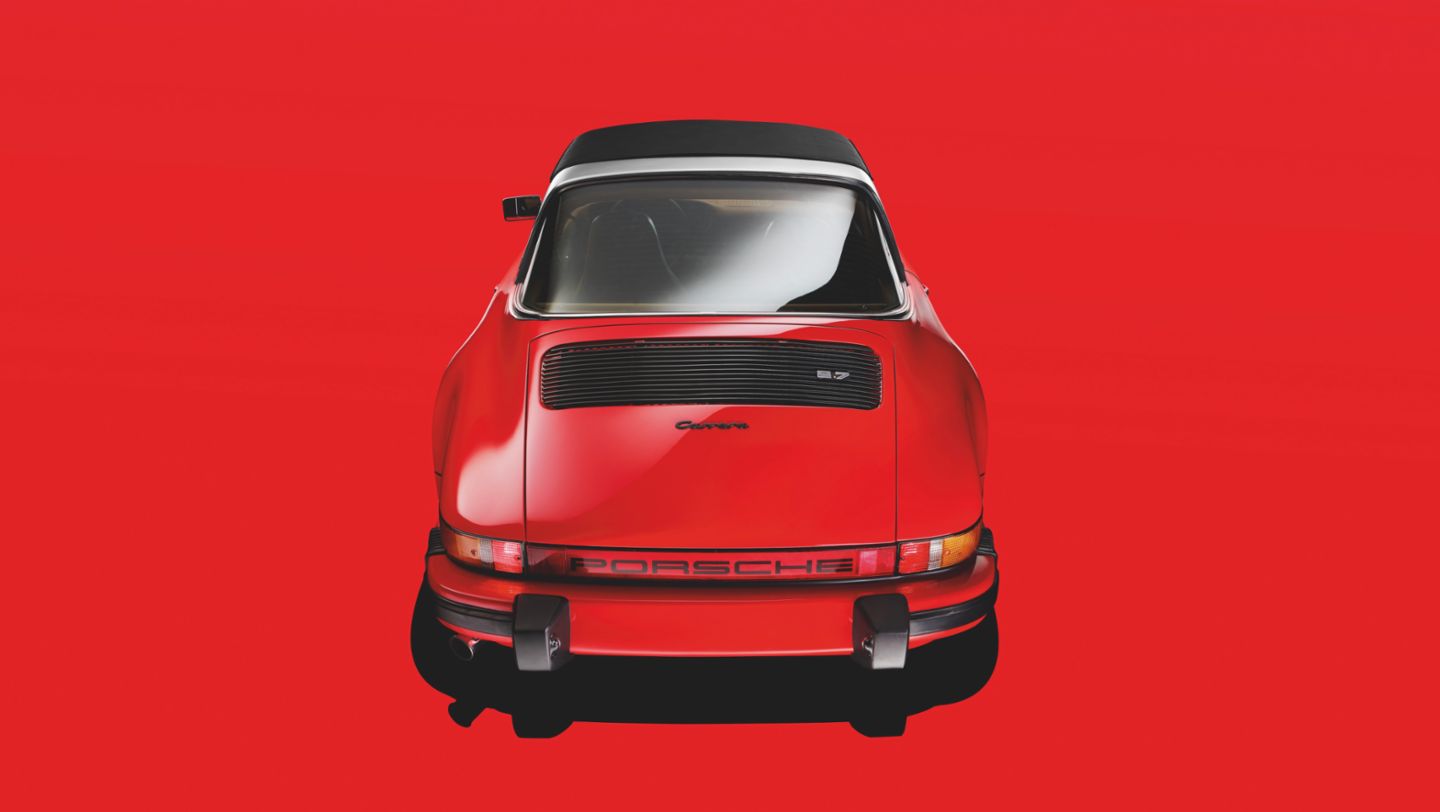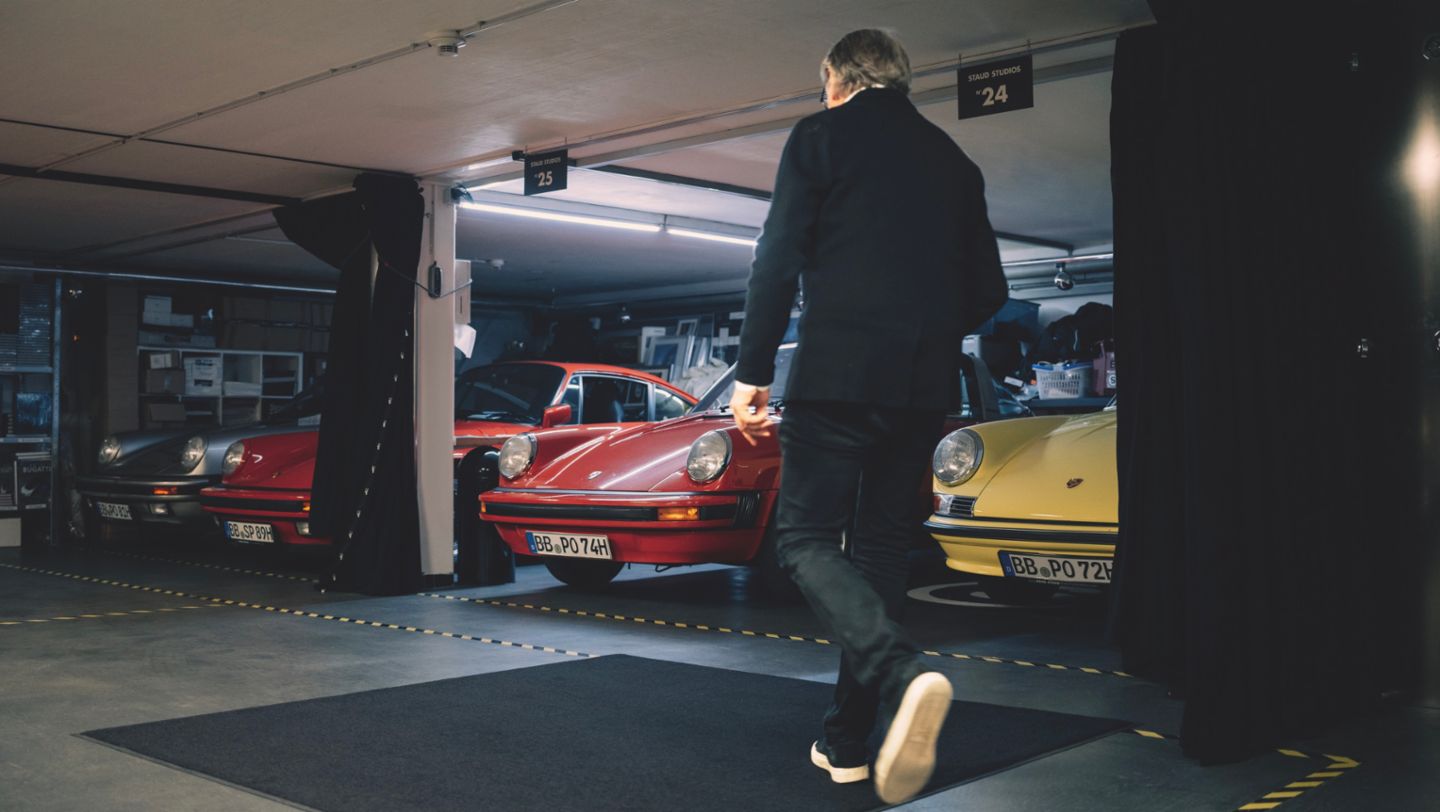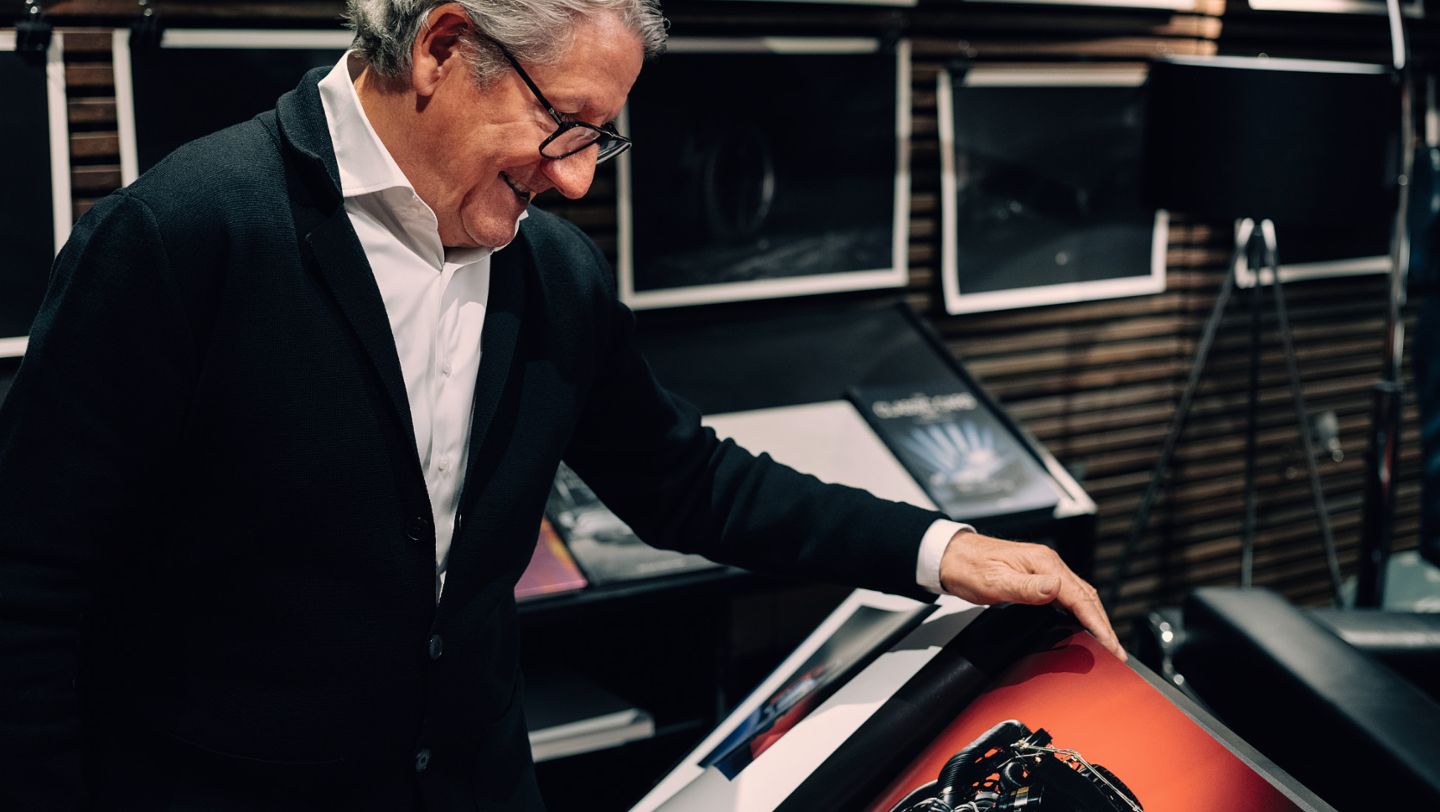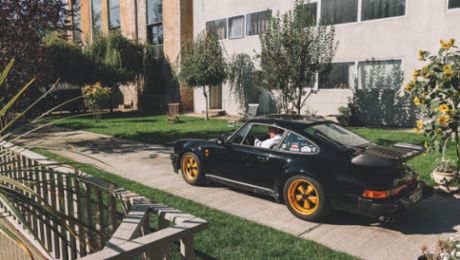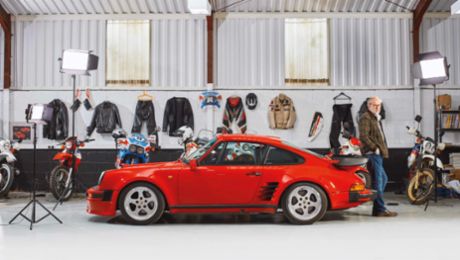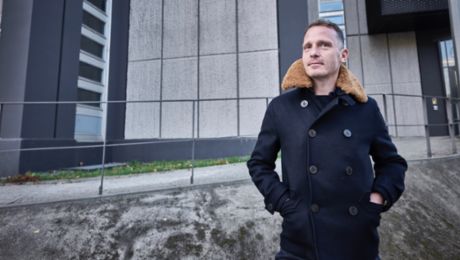Those who know René Staud might be surprised to hear it, but the well-known photographer no longer lives 24/7 for his business. He has handed over the reins of the legendary Staud Studios to his sons Pascal and Patrick. Does this mean retirement? On the contrary – it means freedom! Staud could never be called retired: he’s a man of independent means.
We meet him in the huge shoe box that is his photo studio in Leonberg, a place where he actually spends very little time these days. And yet more or less living in this box was once his professional life. Staud is dressed in black, as he presumably is every day, or at least every day he spends in public. He has not just made his style of photography a brand – he is the brand: in terms of his style, and in terms of his appearance. Black trousers, black jacket, a plain white shirt underneath.
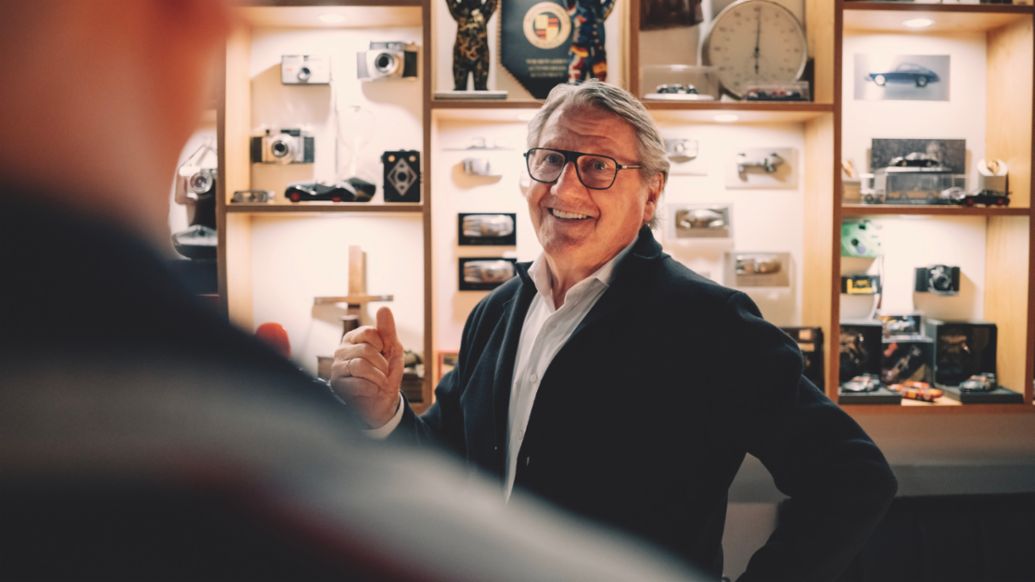
It is objects that bring colour to his life. Today, a 1978 Porsche 935 is providing the backdrop for our maestro. It is indirectly – but optimally – illuminated by one of Staud’s own inventions. The Magic Flash replaces the sky. The softly glowing light box the size of an articulated lorry is suspended above the orange racer. The car: a class winner at Le Mans. The photographer: master of all classes.
One of the most influential photographers of his time
Staud was certainly one of the most influential photographers of his time, and remains so today. Mercedes-Benz was the first to put a car in his studio. Then in 1983, Porsche called. Staud’s assignment was to photograph the campaign for the launch of the new, Porsche 959 super sports car. He staged the car as an epochal Porsche moment. The advertisement featuring his images won the Best Campaign of the Year award in 1987. “For me, to this day, it’s the most important project I’ve done,” says Staud, as he puts his hand on the roof above the door of the 935, and stands still for a while.
It was in 1972 that Staud stood behind the camera for his first photoshoot involving a car. On Fuerteventura, he had a buggy fly over the dunes for what was actually a lifestyle shoot for an investment company that wanted to sell holiday homes on the island to German customers. His job was to make Fuerteventura look irresistible, and leaping dune buggies were a pretty good fit, being all the rage at the time. Just like windsurfing, which was unknown in Europe. It was only in 1977 that ‘Surf’ magazine made what is known as board sailing more familiar to the nation, which came to love it.
A parade of cars as the stuff of dreams
Staud grew up in Stuttgart. Living not far from the red light district of the Swabian city, every evening the young man would be fascinated by the sports cars and other fancy vehicles rolling slowly through the narrow streets or parked in front of the bars and clubs. This is where the son of a wood sculptor of very modest means would see real Ferraris, the odd Maserati, Iso Rivolta or Mercedes SL, and – now and then – a Porsche 356. A parade of cars that were the stuff of dreams for a young kid.
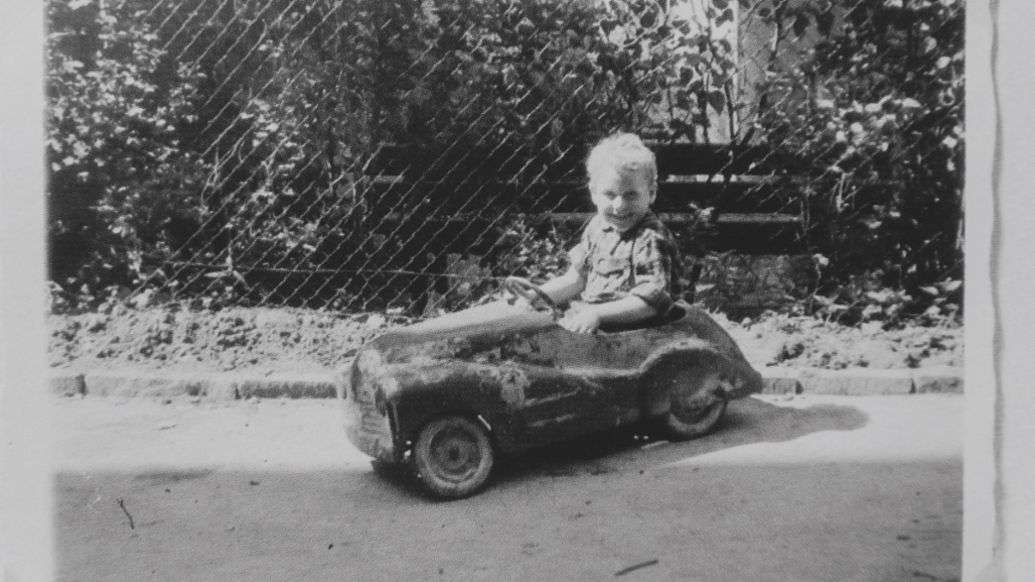
Later, they would all end up in front of his camera. And he got to know the collections of the dazzlingly rich and famous as he put their precious cars in the light of the Magic Flash, as he still does today. Born in 1951, Staud has also accumulated his own more modest collection over the decades. He keeps his private objects of desire beneath the huge studio, which also provides space for a huge truck. Staud has owned around 40 Porsche models, 25 of which were 911s. And he has always driven them on a daily basis. In the end, his 959 had 60,000 kilometres on theclock when the photographer decided that Zuffenhausen’s technological superstar was simply too good to be driven in the stop-start traffic between the studio and his home.
Staud is a passionate racer
Though he did have a lot of fun with it, being a passionate racer. From 1996 to 1998, Staud himself was a subject for photography, oozing style in his cool white F-Model with red stripes along the roof and bonnet.
A good 16 cars, maybe a few more, are parked under Staud’s workplace in Leonberg today. On the way downstairs, you pass illuminated display cases with awards for his art as well as old cameras, including the first one he ever owned, an Edixa Mat Reflex. Precious model cars, huge stopwatches – devotional objects of a successful, fulfilling life. There are little stories about many of them, with some just being delightful or amusing.
The garage of René Staud
This man is never ostentatious and always has a smile on his face, flattering his guest and making him likeable and easy on the eye in every photo. But if he doesn’t know how it’s done, who does? René Staud takes us into his garage.
The Man in Black owns a total of 11 Porsche models: six historic ones, and five new. His first is no longer among them. It was a 914/4, black, of course, with yellow wheels. He bought it from the press department when it was left standing in the yard in front of the red brick building in Werk 1. In the hippie decade of the 1970s, black cars were out and a bargain could be had.
Staud’s favourite Porsche
“Porsche has always meant a lot to me,” says the grand seigneur of automotive photography, and of course: “I’ve always wanted one, ever since I was a little boy.” We’ve all heard this before, but when you see how his eyes light up and his hand pulls on the handle of the red Targa, you believe every word. This is a 2.7 from 1974. It is Staud’s favourite Porsche. He skilfully manoeuvres the car out of the underground garage in a graceful arc, and steers the red Targa in the direction of Weissach. The road there has a number of elegant bends and a few pretty sharp ones – ideal terrain for the 911 and its driver.
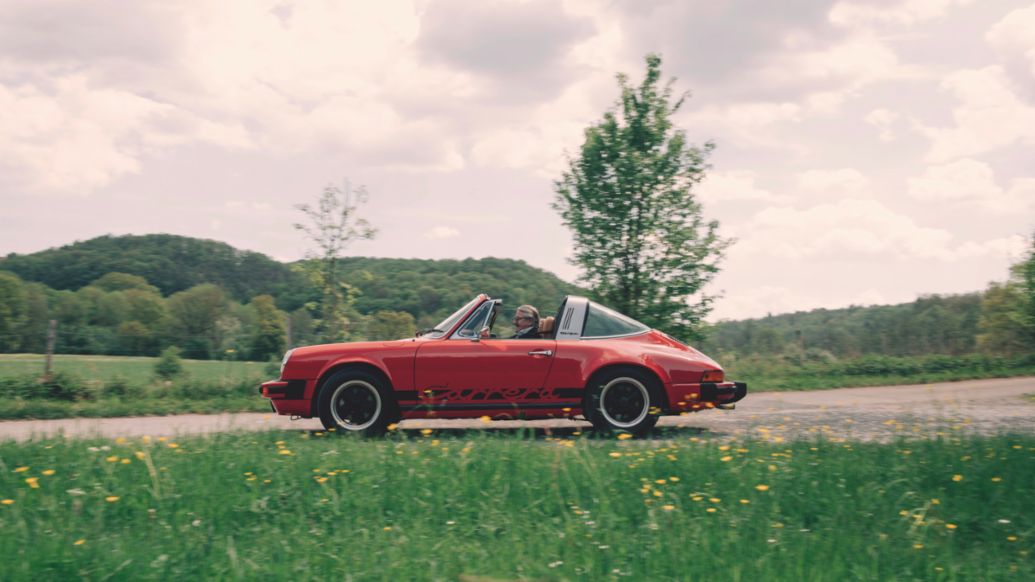
"He fits in perfectly somehow." This is what you think when you see Staud in the photos – everything is exactly as it should be: the joy on his face, the dynamic car on the asphalt. The man of independent means and the Porsche, both having made it. Two out of the box.
Porsche 911 2.7 Targa
Year of construction: 1974
Engine: Six-cylinder boxer
Displacement: 2,653 cm3
Acceleration 0-100 km/h: 6,3 s
Maximum power: 210 PS (154 kW)
Empty weight: 1,075 kg
Top speed: 245 km/h
Info
Text first published in the magazine Porsche Klassik 24.
Author: Edwin Baaske
Photographie: Felix Aliberti
Copyright: All images, videos and audio files published in this article are subject to copyright. Reproduction in whole or in part is not permitted without the written consent of Dr. Ing. h.c. F. Porsche AG. Please contact newsroom@porsche.com for further information.
